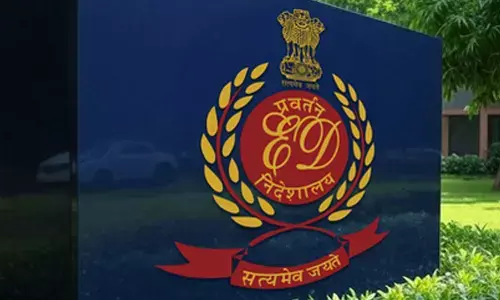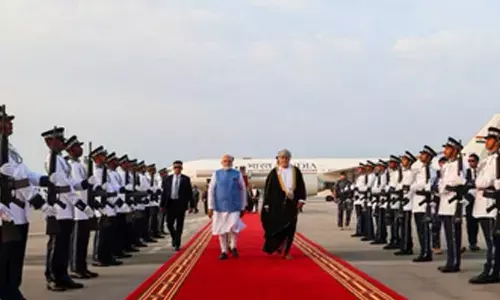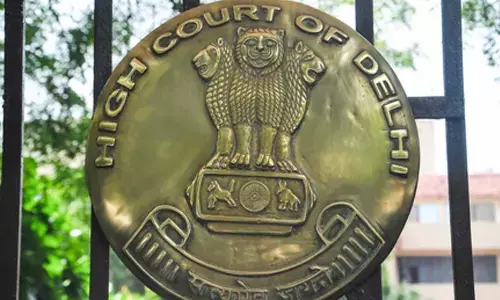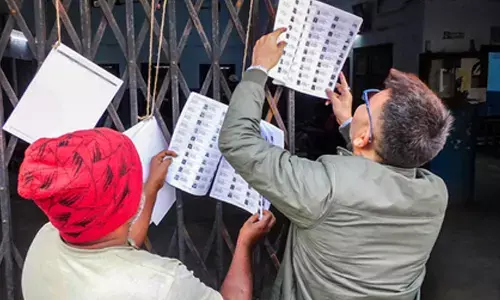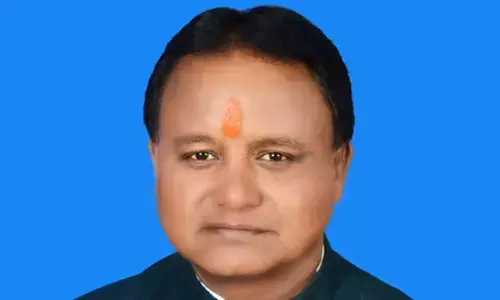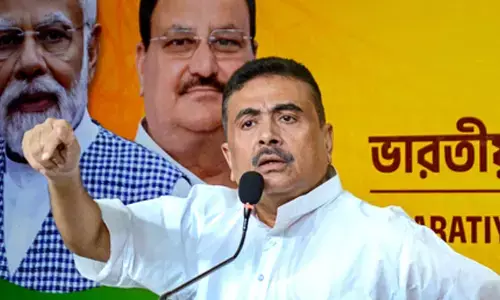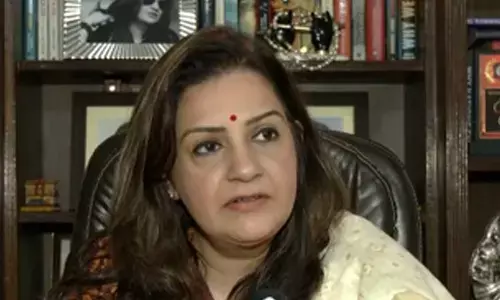Symbols are never reality
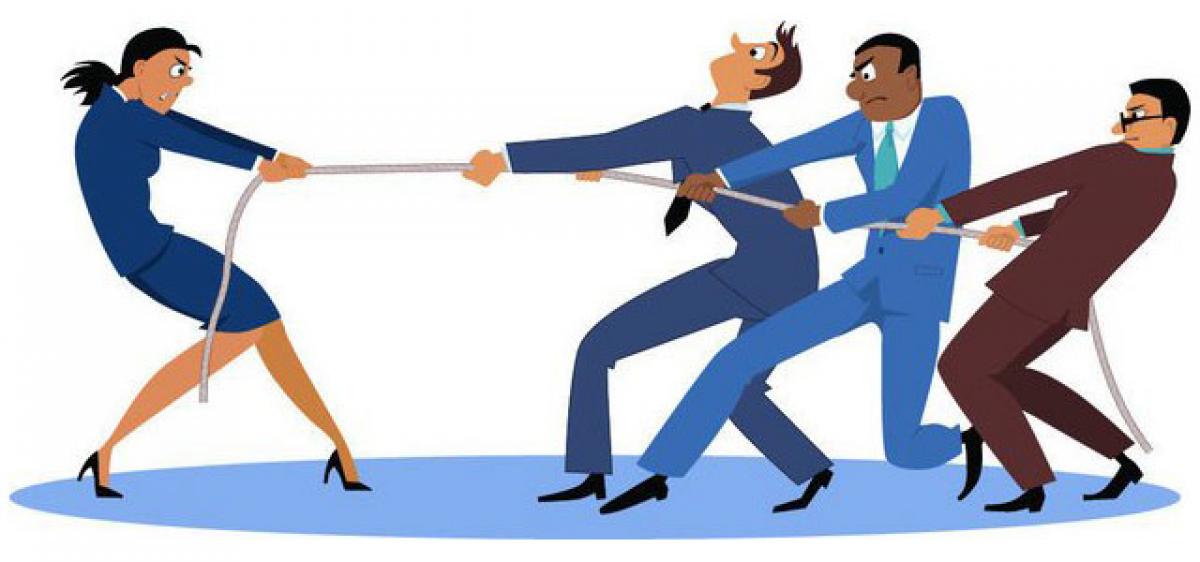
Symbols, often, are like signposts that indicate an unreachable destination. Symbolic gestures allude to the nature of things, outline a possibility or become tools for manipulation as they are high on intent but pitifully low on implementation.
Symbols, often, are like signposts that indicate an unreachable destination. Symbolic gestures allude to the nature of things, outline a possibility or become tools for manipulation as they are high on intent but pitifully low on implementation.
Empty rhetoric and grand announcements add a new dimension to politics as an ‘art of symbolic gestures’. Seen in full glory during election campaigns, they continue to be part of political narrative that reeks of words rarely followed by action. What is even more appalling is the manner in which people are lulled into believing that gestures by themselves are accomplishments.
Using a sticker about ecology on a fuel wasting SUV or putting up a symbol that states one’s love for the city while doing everything to harm its interests are some gestures that indicate intent confined to the realm of words and contrary to stated goals.
‘T- shirts’ worn by our cricketers with their mother's names written on them may seem a well-meaning act on the face of it, but the continuing gender bias in all walks of life including sports makes it just another act of symbolism. Even movies like ‘Gautamiputra Satakarni’ depicting the powerful Satavahana ruler from the South India, who had his mother’s name as a prefix is viewed as whimsical way of an exceptional kind and may do very little for the cause of recognition of women as fellow beings judged by the same yardstick as men.
Apart from raising a few eyebrows or generating a temporary discussion these gestures do very little in the form of batting for a cause or setting right a wrong. Although there are a number of issues that reflect this discordance, symbolic gestures with regard to women are more disconcerting because the most grandiose of all gestures are reserved for them.
Typically, the grander the gesture…the greater is the deviation from action. Despite major victories in all spheres of life women are forced to accept that, gender discrimination is very real and refuses to be dislodged from minds that have nurtured it for ages.
Female feticide, infanticide, lack of education, child marriage, dowry deaths, wage disparity, sexual exploitation and harassment at work place continue unabated. Reports by the government and Non-Government Organisations (NGO’s) on the status of women reveal that gender discrimination and bias affects women belonging to all classes irrespective of educational and income levels. ‘Pink Election Booths’, ‘She Cabs’, ‘She Teams’ (to nab eve teasers) and Women’s Day does with the colour pink notwithstanding, women’s safety hasn’t changed a wee bit since the Nirbhaya outrage.
It affects women outside pubs, techies at work places and even well-known actresses and the recent molestation of a noted Malayalam actress through a planned attack by her former driver shows how fragile, the safety of women is cutting across class in different States in the country.
Whether it’s the ‘boys will be boys’ kind of remarks, provocative dressing comments or absurd comparisons with parked cars, the glaring disconnect between word and action with regard to women is crystal clear. So bad is the lot of women that films on bandit queens, women gangsters and sports women, who can make men eat humble pie, become super hits raking in money because they are cases of triumph among a long list of dampeners.
The failure of the political class in getting the women’s reservation bill passed despite every politician expressing support outside Parliament is a clear indication that the bias is deep rooted and difficult to overcome. Although reservations for women have been put in place at the Panchayat level, it is the men (Sarpanch’s Patis) who wield power and take decisions with women remaining figure heads The protests in Nagaland over women’s reservations in local bodies and consequent unrest and political storm show that getting more representation for women in governance is not as simple as it seems.
Women parliamentarians meeting in Andhra Pradesh too expressed helplessness over this issue unable to come up with a concrete plan of action to achieve success. Women’s empowerment and representation here remains confined to dynasties that ensure that power remains within the family even if it means getting women folk out of their homes. We have fighters like Mamata, Maya, the late Jaya and Sasikala holding the leash and asserting their importance in a male dominated world but they are exceptions.
Overcoming bias is a herculean task as women in the judiciary, media, politics and other professions will vouch for. This makes a mockery of the symbolic Women’s Day celebrations, where the competence and virtues of women are extolled in speech and news channels and papers are full of achievements of power women, who carved a niche for themselves overcoming limitations and stereotypes.
The privileges that accrue to children of sons and daughters are different even in this new technology driven world. Two examples one related to a sought after club and another pertaining to a place of worship lay bare the myth of gender equality mouthed at ‘symbolic gatherings’. A member’s son becomes eligible to apply for membership after he turns 25 years at a premium club in the capital city of Hyderabad but daughters were reluctantly given membership after a prolonged struggle albeit without voting rights.
However, unlike the member’s grandson (son’s son); the daughter’s son is not eligible for membership. Several attempts to change this anomaly have yielded no results because many distinguished male members are opposed to this move.
Where then is the equality between sons and daughters? What is the difference between a member’s son and daughter and why are educated, enlightened members of a privileged club reinforcing male dominance and resorting to discrimination on the basis of gender?
The answer is quite simple. They are merely mirroring sentiments of a patriarchal society that sets rules and respects its women but keeps them in their place wherever that is. This is also true of elitist clubs still run in the British style in many parts of the country. If this is an elitist attitude, look at the situation at a temple in Kerala, where the observances at the temple are presided over by the male members of a sect of priests.
The attempts of the reigning Tantri to get his daughter’s son into the sanctum sanctorum to perform rituals along with his son’s sons were however thwarted. The Devaswom Board refused permission stating that the daughter’s son could not be seen as a spiritual heir.
Both examples one from the spiritual and another from the temporal realm only show the deep rooted gender bias that runs across different cross sections of society. Set aside a few exceptions and the story is the same everywhere. To totally dismiss well intentioned thoughts and attempts to do away with stereotypes would be foolish but to think that symbolic gestures would change things on the ground would be absolutely naïve.








